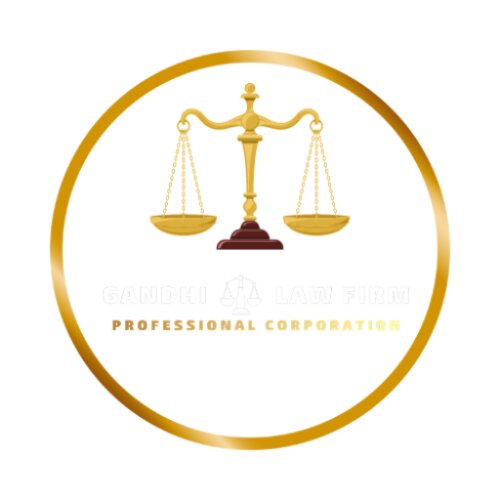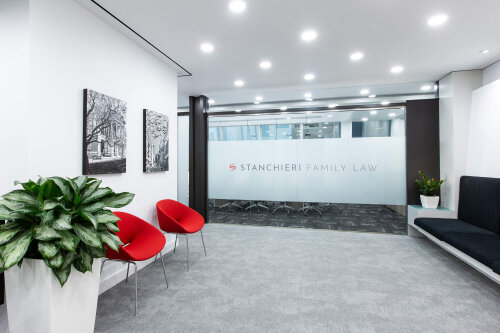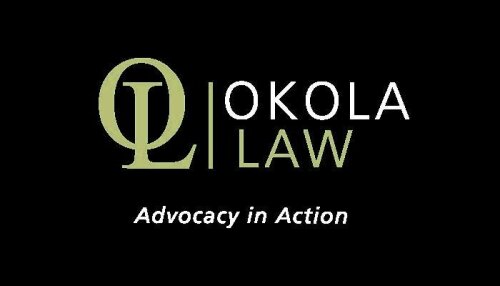Best Collaborative Law Lawyers in Toronto
Share your needs with us, get contacted by law firms.
Free. Takes 2 min.
Free Guide to Hiring a Family Lawyer
List of the best lawyers in Toronto, Canada
About Collaborative Law in Toronto, Canada
Collaborative Law is a legal approach that emphasizes cooperation over confrontation in resolving disputes. In Toronto, Canada, Collaborative Law is commonly used in family law matters, especially during divorces or separations. This method promotes amicable solutions by encouraging open communication and mutual respect among parties with the assistance of trained collaborative professionals, including lawyers, financial advisors, and mental health experts. The primary goal is to reach a fair settlement without resorting to court proceedings.
Why You May Need a Lawyer
There are several situations where someone might require legal advice in the field of Collaborative Law in Toronto:
- Divorce or Separation: When a couple decides to end their marriage or partnership and seeks a cooperative process to detangle shared responsibilities and assets.
- Child Custody and Support Issues: Parents who wish to nurture a co-parenting relationship and settle on custody arrangements and support terms amicably.
- Property and Financial Settlements: Dividing assets and debts in a mutually beneficial manner without court intervention.
- Pre-marital and Post-marital Agreements: Couples who want to establish terms that govern financial and personal matters during the marriage and in the event of a separation.
Local Laws Overview
Collaborative Law in Toronto is guided by specific principles that align with provincial and Canadian law. Key aspects include:
- Voluntary Participation: Both parties must willingly choose the collaborative process and commit to reaching a resolution together.
- Confidentiality: Discussions held during the collaborative process are confidential and cannot be used as evidence if the case proceeds to court.
- Non-adversarial Approach: The goal is to avoid court litigation, with both parties and their lawyers agreeing to withdraw from the case if it heads to trial.
- Team Approach: A team of professionals, including neutral financial planners and communication coaches, often supports the process to facilitate a comprehensive resolution.
Frequently Asked Questions
What is the difference between Collaborative Law and Mediation?
While both aim at resolving disputes outside of court, Collaborative Law involves each party being represented by a lawyer who facilitates negotiations, whereas mediation typically involves a neutral mediator with no representation.
Can Collaborative Law be used in cases other than family law?
Yes, while most common in family law, Collaborative Law can also be applied in civil disputes, including business conflicts, employment issues, and other areas where an ongoing relationship exists.
What happens if we don't reach an agreement through Collaborative Law?
If an agreement cannot be reached, the collaborative process terminates, and the parties may proceed to court. In such cases, new legal representation must be found as collaborative lawyers cannot represent you in litigation.
How long does the Collaborative Law process take?
There is no set timeline; the process can be as quick or as lengthy as the parties require, generally taking faster than traditional litigation if parties remain committed and cooperative.
What costs are associated with Collaborative Law?
The costs can vary depending on the complexity of the issues and the time required to reach an agreement. However, they are often less than traditional litigation due to the emphasis on efficiency and cooperation.
Are there any circumstances where Collaborative Law is not appropriate?
Collaborative Law might not be suitable in cases involving domestic violence or severe power imbalances where fair negotiations are not feasible.
How do I find a collaborative lawyer in Toronto?
Look for lawyers who are specially trained in Collaborative Law and are members of organizations like the Collaborative Practice Toronto, which lists certified professionals.
Can the collaborative process be customized?
Yes, one of the strengths of Collaborative Law is its flexibility, allowing the process to suit the unique needs and pace of the parties involved.
Will the collaborative process be legally binding?
Once a resolution is reached and both parties sign an agreement, it becomes legally binding and can be enforced like any other legal contract.
Is Collaborative Law recognized by the court system?
Yes, the outcomes of the collaborative process, once formalized in legal documents, are recognized by the courts as binding agreements.
Additional Resources
If you need more information or assistance, consider reaching out to these resources:
- Collaborative Practice Toronto: A network of professionals offering services in Collaborative Law in Toronto.
- Law Society of Ontario: Provides resources and a directory for finding qualified collaborative lawyers.
- Ontario Collaborative Law Federation: Offers information about collaborative training and resources across the province.
- Family Law Information Centre (FLIC): Provides assistance and information on family law matters.
Next Steps
If you are considering Collaborative Law, begin by consulting with a lawyer experienced in this area. Prepare a list of your goals and concerns, and discuss them openly with your lawyer to explore how Collaborative Law can best serve your needs. To initiate the process, you and the other party must agree to proceed collaboratively and engage trained professionals to guide the process, ensuring that all aspects are handled respectfully and efficiently.
Lawzana helps you find the best lawyers and law firms in Toronto through a curated and pre-screened list of qualified legal professionals. Our platform offers rankings and detailed profiles of attorneys and law firms, allowing you to compare based on practice areas, including Collaborative Law, experience, and client feedback.
Each profile includes a description of the firm's areas of practice, client reviews, team members and partners, year of establishment, spoken languages, office locations, contact information, social media presence, and any published articles or resources. Most firms on our platform speak English and are experienced in both local and international legal matters.
Get a quote from top-rated law firms in Toronto, Canada — quickly, securely, and without unnecessary hassle.
Disclaimer:
The information provided on this page is for general informational purposes only and does not constitute legal advice. While we strive to ensure the accuracy and relevance of the content, legal information may change over time, and interpretations of the law can vary. You should always consult with a qualified legal professional for advice specific to your situation.
We disclaim all liability for actions taken or not taken based on the content of this page. If you believe any information is incorrect or outdated, please contact us, and we will review and update it where appropriate.














